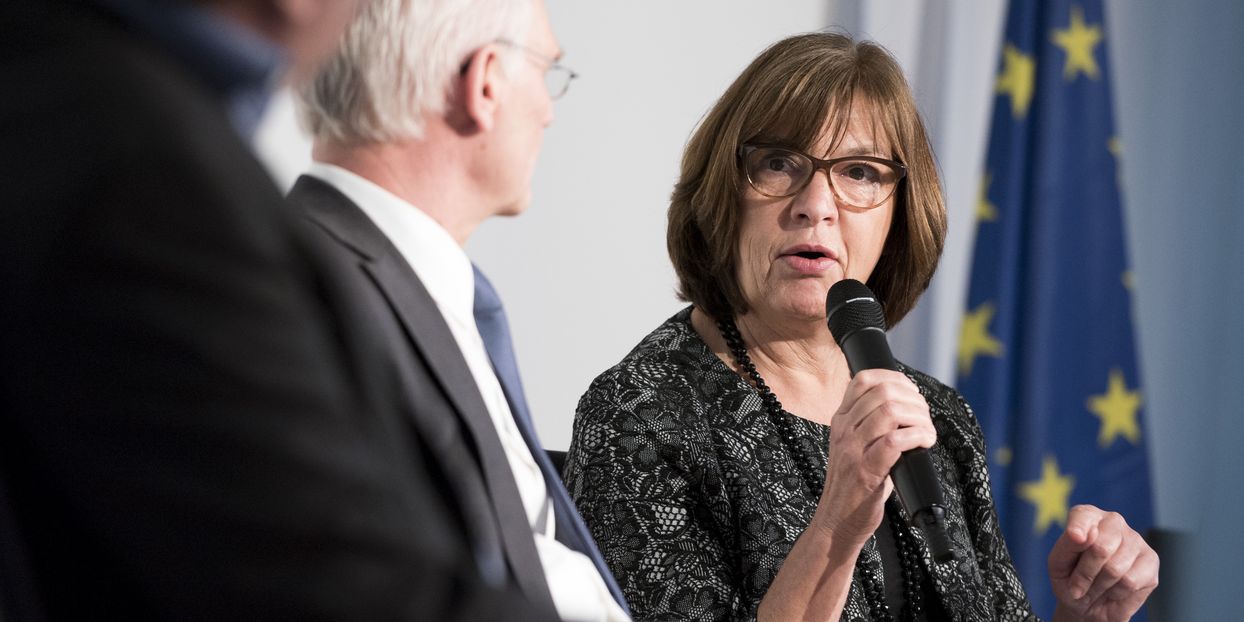
Europäische Solidarität in der Krise
Crisis Talk on 23. February 2016
"European Solidarity in (the) Crisis?" Under this heading the second Crisis Talk of the Leibniz Research Alliance Crisis in a Globalised World took place in Brussels on February 23. The event, co-hosted by the Cluster of Excellence “Normative Orders” and the Representation of the State of Hessen to the EU, attracted about 150 participants. The Crisis Talk focused on the question whether the current crises of the European Union, especially the Euro-crisis and the refugee crises, lay bare an enduring lack of solidarity or whether they offer a chance to rethink European Integration.
The two opening statements by Lucia Puttrich, Minister for Federal and European Affairs of the State of Hessen, and Klaus Dieter Wolf, Speaker of the Leibniz Research Alliance Crises in a Globalised World and director of the Peace Research Institute Frankfurt (PRIF), outlined the challenges. Michael Zürn, political scientist at the Berlin Social Science Centre (WZB), explained how scaling-up solidarity works. He argued that scaling-up – in the case of the refugee crises from minimal solidarity to institutionalized solidarity, in the case of Greece from institutionalized solidarity to redistributive solidarity – requires expanding recognition. Zürn argued that the path to scaling-up solidarity in the European Union must be politicization since other historical pathways (like national solidarity or functional integration) seem exhausted. He illustrated this by pointing to the German discourse where politicizing the refugee situation brought a decline in the number of people fundamentally rejecting integration efforts. He urged European elites not to de-politicize political options by withdrawing to technical justifications, but instead to search ‘political’, even if risky confrontation.
In the panel discussion Rebecca Harms, Member of the European Parliament and Chair of the Group of the Greens/EFA, warned that overextending German discourses to the European public and imagining nation state solutionism for European problems might backfire. Instead she reminded the audience that the constitutional process and its failing might be a ‘deep’ factor in the current crises. Janusz Lewandowski, Member of the European Parliament and former Polish European Commissioner (2009-2014), agreed with Harms and Zürn on the need for active identity building, but recommended not to lose sight of the functional integration of Europe. Speaking from his own biographical experience he stressed how important everyday solidarity and the experience of Europe as a beneficial force is and that the current crises might give rise to populists, but that these can be curtailed by proofing the values of European Integration.
